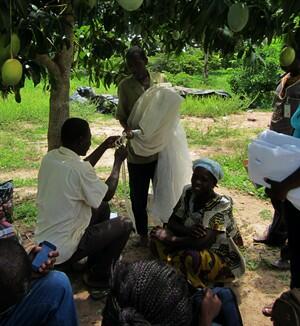
New tools are urgently needed to combat the growing problem of insecticide resistance in relation to the transmission of malaria. The last decade has seen the number of cases of the disease fall by almost 50% in Africa, but, as vector control is the most effective means of preventing the transmission of malaria, unless urgent action is taken to address insecticide resistance in mosquito populations, those gains could be reversed.
The AvecNet Consortium is a group of international research institutions, who take a multi-disciplinary approach in the research and development of new vector control tools designed to address this resistance crisis. Hosted by LSTM AvecNet is financed by the European Commission’s Seventh Framework Programme.
In June 2014, the first clinical trial of a new type of bednet, Olyset® Duo (produced by Sumitomo Chemical Company) began in the Banfora region of Burkina Faso. This bednet contains two chemicals: a conventional pyrethroid insecticide to rapidly kill mosquitoes, and an insect sterilizing agent, to prevent any resistant mosquitoes that do survive the insecticide from laying eggs. The trial will involve nets being distributed throughout the population of over 60,000 people and the impact on malaria will be evaluated over a two year period.
The clinical evaluation of Olyset Duo® is being led by members of the AvecNet Consortium Centre National de Recherche et de Formation sur le Paludisme (CNRFP) and the University of Durham, with researchers from LSTM evaluating the impact on resistance. Professor Hilary Ranson, AvecNet Consortium Leader and Head of LSTM’s Department of Vector Biology, said: “These nets have the potential to provide a solution to the problem of insecticide, but evaluation of their effectiveness under field settings is key. By evaluating new tools, such as Olyset Duo® and strengthening capacity for field trials AvecNet is aiding the translation of research and product development into new solutions for malaria control in Africa.”